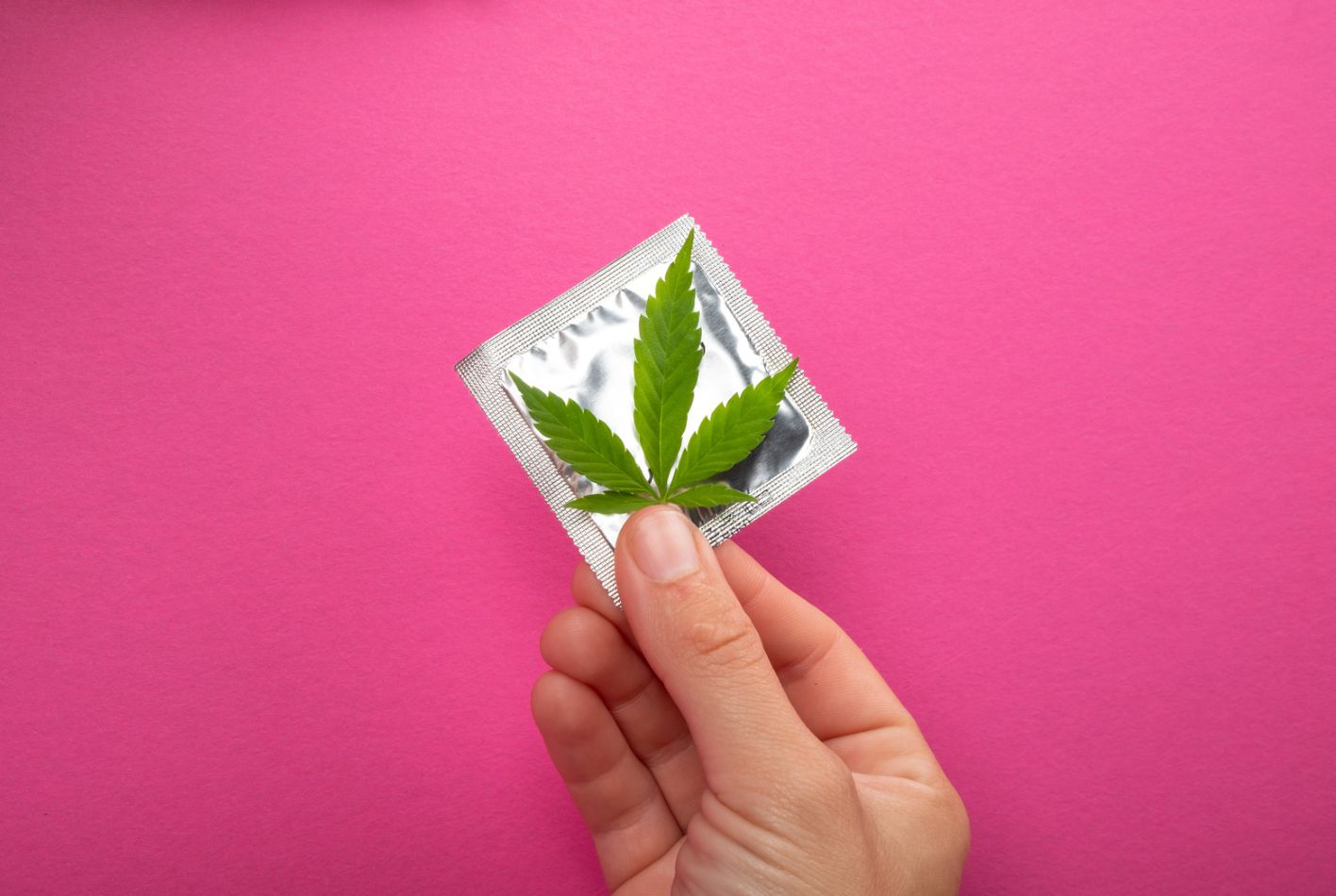Cannabis and Sex
All Blog PostsBefore cannabis was legalized for adult use in California, Shannon (not her real name) came to my office like many patients do—apprehensive about consulting with a medical cannabis doctor but genuinely seeking relief for her medical concerns. In her late forties, entering menopause but in good health, she had been grappling with insomnia, anxiety, and decreased libido for some time. She tried prescribed sleeping pills and anti-anxiety medications, but they left her feeling like a zombie, offering no improvement in her sex life with her husband. A month before her appointment with me, a friend gave her some cannabis to try, promising it would help with everything. To her surprise, not only did she sleep better and feel less stressed, but cannabis also reignited her libido, much to her husband's delight, prompting him to encourage her to seek legal access.
Shannon's story mirrors that of many women I encountered in my practice—juggling full-time jobs, caring for children and elderly parents, trying to prioritize their own health and navigating the myriad of stressors that accompany a busy lifestyle. Amidst these responsibilities and the fluctuations of female hormones, partner intimacy often takes a backseat. These patients express a genuine desire for closeness with their partners and want to have active and fulfilling sex life, yet feel blocked by the many demands of their schedules.
Enter cannabis, a plant renowned for its aphrodisiac properties, utilized for millennia across various cultures. Ancient holistic healing traditions such as Ayurveda in India recommended cannabis to enhance sexual experiences, with cannabis-infused concoctions like "bhang" featuring prominently in Tantric sex rituals. In Africa, cannabis continues to be employed to address erectile dysfunction. While anecdotal reports extolling cannabis's sexual-enhancing effects abound, scientific research on cannabis and libido yields conflicting findings.
Some studies suggest that THC, a psychoactive compound in cannabis, can increase testosterone levels, thereby enhancing sexual arousal, while others contend that cannabis dampens libido. A study published in The Journal of Sex Research in 1984 found that a majority of cannabis users reported heightened sexual pleasure and satisfaction, attributing these effects to the reported aphrodisiac qualities of cannabis.
More recent reports document real-world sexual function and satisfaction by people who use cannabis. A 2020 survey of 325 men who visited a single cannabis dispensary evaluated sexual function as assessed by the International Index of Erectile Function (IIEF). This validated survey consists of 15 questions with a maximum score of 75, and is divided into five functional domains including erectile function, orgasmic function, sexual desire, intercourse satisfaction and overall satisfaction. A higher score indicates better erectile function, with a score < 21 considered erectile dysfunction. After statistical analysis, the researchers found men using cannabis more frequently had a statistically significant higher overall IIEF score, erectile domain, orgasm domain, intercourse satisfaction domain and overall satisfaction domain. Interestingly, the primary method of consumption and cannabinoid composition (CBD vs. THC) were not associated with sexual function.
Another 2020 report by the same investigators looked at the association of cannabis on female sexual function using a validated survey tool called the Female Sexual Function Index (FSFI). Similar to the aforementioned study, women who visited a cannabis dispensary were asked to participate and answered questions related to their health status, cannabis use habits and sexual function. A total of 452 women responded, with the majority between the ages of 30 - 49 years old. 81.6% reported that they were in a relationship or married. Almost 73% reported using cannabis more than six times per week, usually through smoking flower. Women who reported more cannabis use reported higher scores on the FSFI, indicating less sexual dysfunction. An interesting finding was that for each additional step of cannabis use intensity (for instance, how many times they used cannabis per week), the odds of reporting female sexual dysfunction declined by 21%. As with the findings reported in men, the type of cannabis and the method of consumption did not impact the outcomes. The researchers reported that increase frequency of cannabis use was associated with improved sexual function among female users.
A 2023 report examined the perceived influence of cannabis on sexual functioning and satisfaction. The final sample included 811participants, ages 18 - 85 (mean age 32); 65% were women. Almost 25% identified at LGBTQIA+. 73.3% reported being in a monogamous sexual relationship. Age and gender were not found to have significant effects on cannabis use and sexual functioning and satisfaction. Over 70% of participants reported increased desire and orgasm intensity. These findings resonate closely with what my patients report, sharing that stress relief afforded by cannabis cultivates a sense of happiness and relaxation, fostering more intimate interpersonal connections.
Achieving the desired effect hinges on finding the right product and dosage. Cannabinoid compounds like CBD and THC have biphasic properties, which means they can have opposite effects at low and high doses. Hence, my advice to those seeking to use cannabis for libido enhancement is the same as other ailments: start with a low dose and titrate up slowly to find the dose that provides the desired effects. Experimentation with different strains, products and consumption methods may be necessary to discern what works best. Additionally, one's mindset before and during cannabis use plays a crucial role, as anticipating an enjoyable sexual experience can enhance the overall outcome.
In recent years, cannabinoid-based lubricants have emerged on the market and can be applied topically to the vaginal area to enhance sexual pleasure. Some women who suffer from painful intercourse report that cannabinoid-containing vaginal suppositories alleviate pain and allow for a pleasurable experience. While some patients report heightened sensations without experiencing a psychoactive high, others find traditional cannabis consumption methods more effective, enabling them to relax and fully engage with their partners without distractions.
The late Dr. Lester Grinspoon, an esteemed and outspoken cannabis advocate and Emeritus Associate Professor of Psychiatry at Harvard Medical School, emphasized the benign nature of cannabis and its potential benefits for sexual dysfunction. His endorsement underscores the growing recognition of cannabis as a viable option for addressing and improving issues with sexual intimacy.

